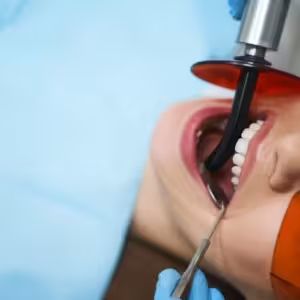
Root canals are often considered the go-to solution for saving a tooth that has been severely damaged or infected. However, for some seniors, the prospect of undergoing a root canal can be daunting due to anxiety, financial concerns, or health issues. Fortunately, there are several alternative treatments available that can address dental problems without the need for a root canal. At Dental 32 in Ashburn, VA, Dr. Ninh is committed to helping his patients explore these options. Here’s a look at some of the top alternatives to root canals for seniors.
1. Dental Extractions
One of the most straightforward alternatives to a root canal is tooth extraction. If a tooth is too damaged or infected to save, extraction may be the best option. While this may seem drastic, it can sometimes be more beneficial than a root canal, especially for seniors with existing health concerns. After extraction, options for replacement—such as dental implants, bridges, or dentures—can help restore functionality and aesthetics.
Pros:
- Quick procedure with immediate relief from pain.
- Eliminates the risk of further infection from the damaged tooth.
Cons:
- Loss of the natural tooth can affect chewing and alignment.
- Requires a plan for replacement.
2. Pulp Capping
Pulp capping is a less invasive treatment that may be suitable for seniors with early-stage tooth decay or damage. In this procedure, the dentist places a protective dressing over the exposed pulp of the tooth, allowing it to heal and potentially avoid the need for a root canal.
Pros:
- Preserves the natural tooth structure.
- Minimal discomfort and quick recovery.
Cons:
- Not suitable for all cases; effectiveness depends on the extent of the damage.
- Requires ongoing monitoring to ensure healing.
3. Crowns and Fillings
For teeth that are damaged but not infected, dental crowns or fillings can provide a viable alternative to root canals. A crown can restore the shape, size, and strength of the tooth, while fillings can seal cavities and prevent further decay.
Pros:
- Restores function and appearance without invasive procedures.
- Can extend the life of a tooth significantly.
Cons:
- May not be effective if there is significant decay or infection.
- Regular check-ups are necessary to monitor the tooth’s condition.
4. Laser Therapy
Advancements in dental technology have introduced laser therapy as a potential alternative to root canals. Lasers can be used to remove infected tissue and sterilize the area, promoting healing without the need for traditional drilling.
Pros:
- Minimally invasive with less discomfort and faster recovery.
- Reduced need for anesthesia and less bleeding.
Cons:
- Not all dental offices offer this technology.
- May not be suitable for all types of dental issues.
5. Natural Remedies and Holistic Approaches
Some seniors may prefer to explore natural or holistic approaches to dental care. While these methods may not always be substitutes for professional treatment, they can support oral health and alleviate symptoms of tooth decay.
Common Remedies:
- Clove Oil: Known for its analgesic properties, it can be applied to the affected area to reduce pain.
- Saltwater Rinses: Help to cleanse the mouth and reduce inflammation.
- Dietary Changes: Incorporating more calcium and vitamin D can support dental health.
Pros:
- May alleviate pain and support overall health.
- Can be used alongside professional treatments.
Cons:
- Should not replace professional dental care.
- Efficacy may vary, and scientific backing may be limited.
6. Root Canal Alternatives for Specific Situations
For some seniors, specific treatments may be more appropriate based on their overall health, existing dental conditions, or personal preferences. For example, endodontic retreatment may be considered for patients with previously failed root canals, while regenerative endodontics can be an option for younger patients with immature roots.
Pros:
- Tailored treatments that consider individual health needs.
- Potential for preserving more natural tooth structure.
Cons:
- Availability of these specialized treatments may vary by practice.
- Requires thorough assessment and consultation with the dentist.
Conclusion
While root canals are often effective for treating damaged teeth, they are not the only option available. Seniors at Dental 32 can explore various alternative treatments with Dr. Ninh, tailored to their specific dental health needs and concerns. Understanding these options can help seniors make informed decisions about their oral care, leading to better outcomes and increased comfort.
If you or a loved one is facing dental issues and are unsure about the best course of action, don’t hesitate to reach out to Dental 32. Dr. Ninh and his compassionate team are dedicated to providing the highest level of care and helping you explore all available options for maintaining your dental health.
FAQs
Non-covered benefits may not be deemed medically necessary by insurance providers but can still be essential for maintaining dental health.
If a procedure isn’t covered by insurance, it’s essential to discuss alternative payment options with your dentist and budget for the expense accordingly.
Regular dental check-ups are critical for preventive care, regardless of insurance coverage. Skipping them can lead to more significant dental issues in the future
Budgeting for dental expenses ensures that you can cover the costs of non-covered benefits and access necessary treatments when needed.
